
Cancer Hope Network
Latest Content

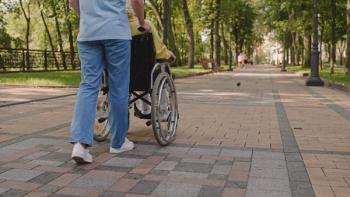
When both a patient and their loved one acting as their caregiver are facing cancer, “there has to be proper care for both,” one expert tells CURE®.

New advisory committee gives a dedicated voice to the unique perspectives of young adults who have been impacted by cancer.
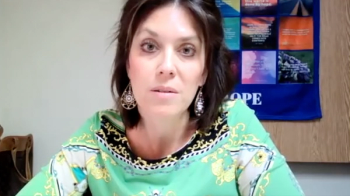
Patients with cancer often experience loneliness, and the COVID-19 pandemic helped the general public better understand what that isolation felt like, an expert said.

Many cancer centers and nonprofit organizations offer resources for patients with cancer and their caregivers to see the support they need to navigate diagnosis, treatment and survivorship.
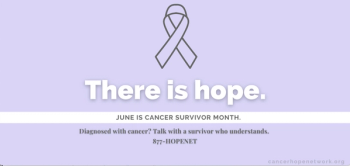
As an organization built and grown by dedicated cancer survivor volunteers, celebrating Cancer Survivor Month is part of CHN’s DNA. Survivors are part of our everyday – from newly diagnosed survivors beginning treatment to long term survivors they’re connecting with.
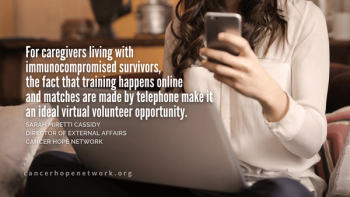
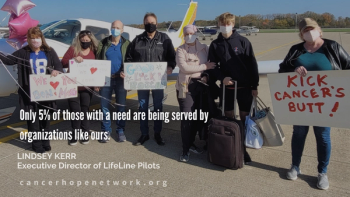
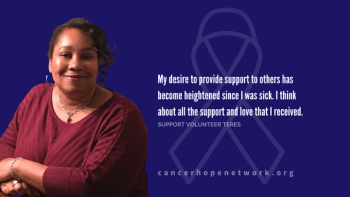

An expert discusses the resources and support available to people to better face their end-of-life journey.
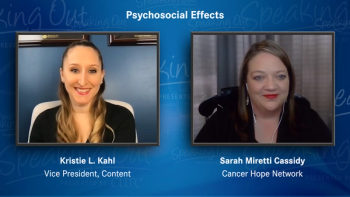
As part of its Speaking Out video series, CURE spoke with Sarah Miretti Cassidy, director of external affairs at Cancer Hope Network, about the importance of support following a lung cancer diagnosis.

As part of its Speaking Out video series, CURE spoke with Sarah Miretti Cassidy, director of external affairs at Cancer Hope Network, about the psychosocial effects of a lung cancer diagnosis.

As part of its Speaking Out video series, CURE spoke with Sarah Miretti Cassidy, director of external affairs at Cancer Hope Network, about support for caregivers of patients with lung cancer.

Advocate Discusses Types of Support for End-Stage Cancer Available for Patients and Their Loved Ones
As part of its Speaking Out video series, CURE spoke with Sarah Miretti Cassidy, from Cancer Hope Network, about seeking support for patients who may be nearing end of life, as well as support for family and friends after a loved one has passed.

Ovarian cancer survivor trained as peer mentor volunteer as part of CHN’s pilot program with Stanford Health Care.
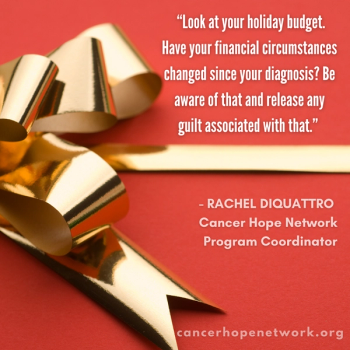
Navigating the ups, downs and new-normal of the holiday season can be challenging for people facing cancer. Our survivor volunteers have tips.
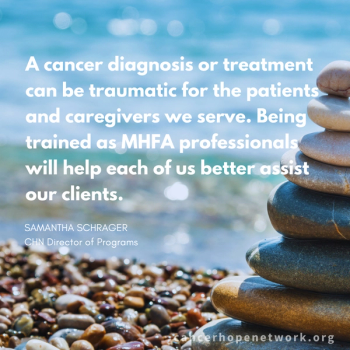
Mental Health First Aiders are anyone who wants to make their community healthier, happier and safer for all.
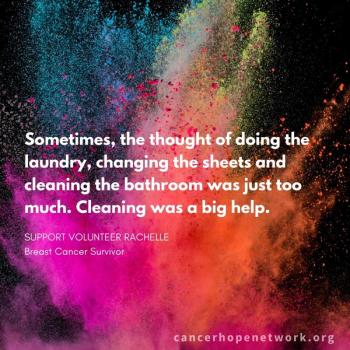
While initial training starts the Support Volunteer journey, continuing education plays a key role in providing high-quality peer support for patient and caregiver clients. Our Hope Check: Volunteer Roundtables focus on critical topics and needs of the oncology community. Today, we share wisdom from a recent Rounds conversation.
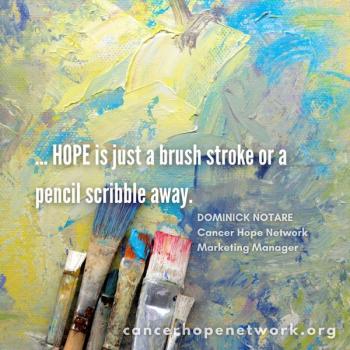
“In addition to providing a relaxing escape against the backdrop of treatment anxiety and fear for the future, creating art may help you understand the myriad of emotions that can go along with a diagnosis of cancer. Emotions that are often difficult to express in words.” - Lynne Eldridge, MD
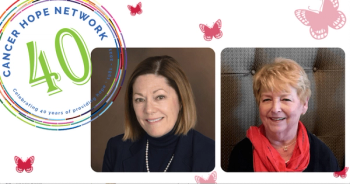
In 1980, there were no social service agencies or nonprofits providing one-on-one peer support for cancer patients. Since those early days, the organization has provided support for more than 50,000 patients, caregivers, and survivors in search of hope.
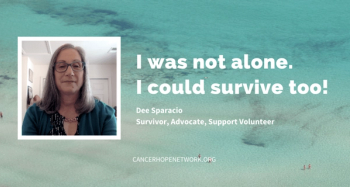
Longterm ovarian cancer survivor Dee reflects on more than a decade of hope-filled service.
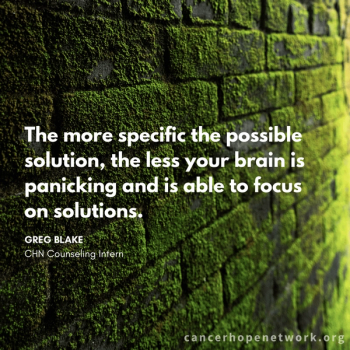
Lessons from Dale Carnegie, applied to 2021 cancer fights.
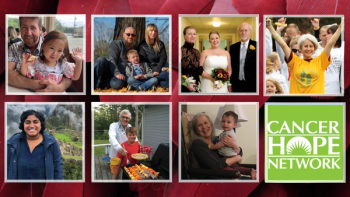
Cancer caregivers deal with a lot. Connecting with someone who understands can help.
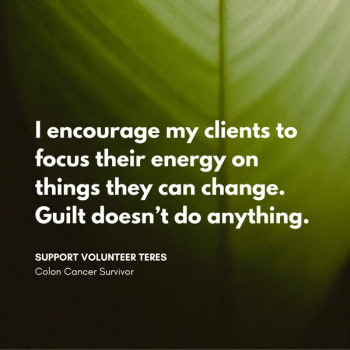
Cancer survivor mentors share tips on managing difficult conversations and creating hope.
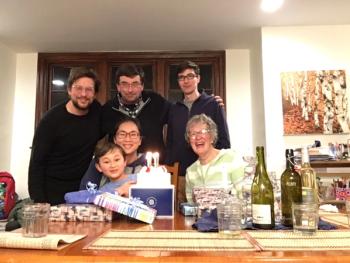
Ann, an ovarian cancer survivor, finds meaning and hope as she accepts – and now shares – help.
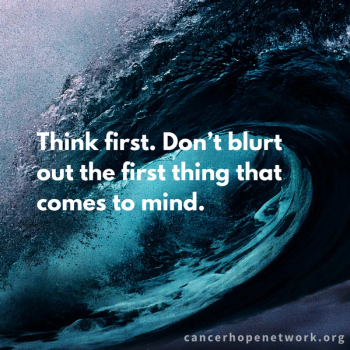
Survivor and caregiver support volunteers give practical tips for how to react when your loved one is diagnosed with cancer.
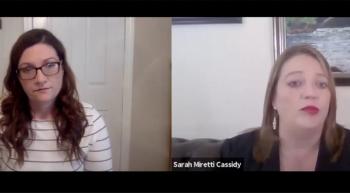
Cancer caregivers can already feel isolated and lonely, and with the COVID-19 Pandemic forcing people to stay home it can get worse. But good communication can help create a sense of community and allow caregivers to feel less lonely.

Survivor and caregiver support volunteers from Cancer Hope Network get candid with one of the emotional side effects of the disease.
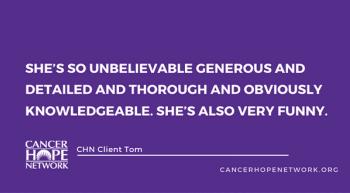
Having someone to talk to through the cancer journey is vital, especially when that person is a fellow survivor that can understand the challenges of treatment.

Mona P is finding hope, life and healing after carcinoma of the pharynx.